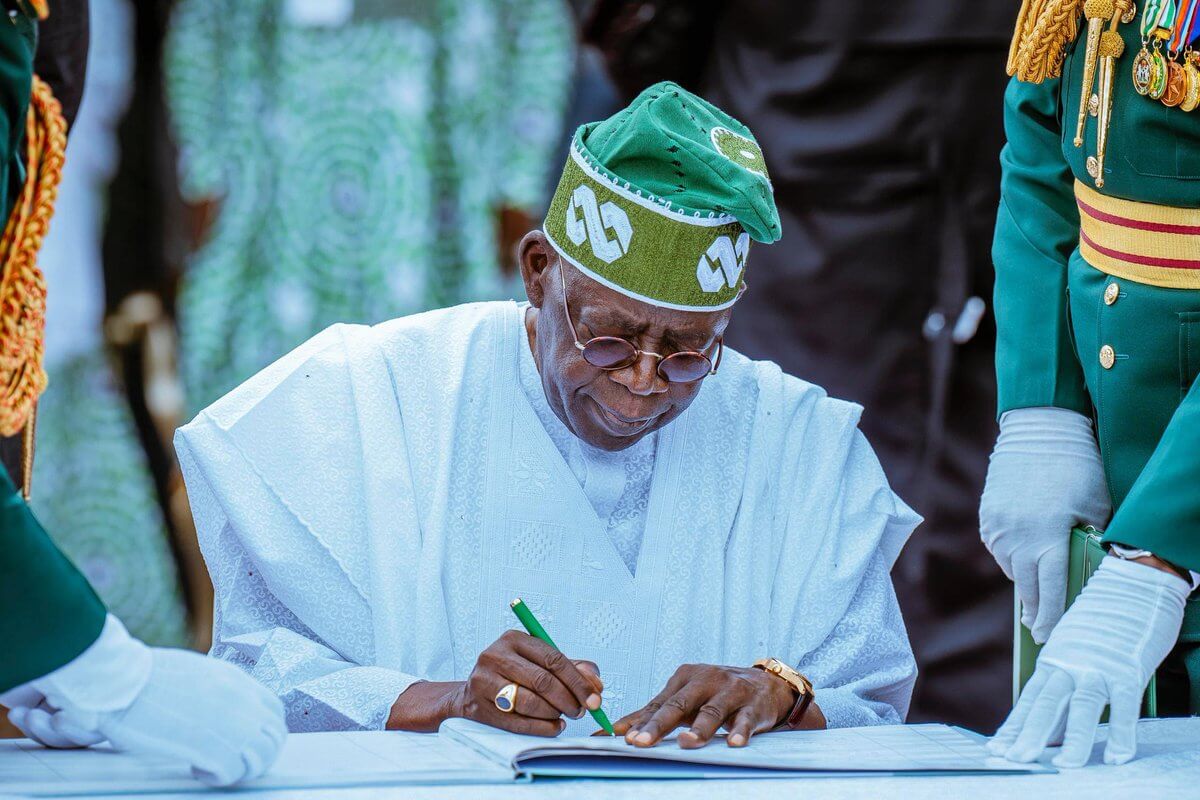Director General of National Broadcasting Commission (NBC), Charles Ebuebu and Director General of the Advertising Regulatory Council of Nigeria (ARCON), Olalekan Fadolapo, have joined the Minister of Information and National Orientation, Mohammed Idris, to launch the nation’s first audience measurement platform in Abuja.
NBC DG, Charles Ebuebu enumerated significance of the measurement system, noting it will bridge numerous gaps within the broadcast system, enhance advertising media preferences and monitor audience consumption patterns.
He identified NBC’s role as facilitator between broadcasters, advertisers and measurement service providers, fostering a collaborative environment, where all stakeholders can contribute to and provide feedback on the system to ensure it meets industry needs.
He added the measurement service would improve NBC’s ability to regulate the broadcast industry effectively, enhance service delivery to its licensees, and ensure the airwaves are utilised in a manner that serves public interest.
On his part, the minister revealed the measurement system represents a significant leap forward in the country’s media landscape.
To the minister, the introduction of the sophisticated audience measurement mechanism is a groundbreaking achievement that aligns with President Bola Tinubu’s vision for a more prosperous and technologically advanced Nigeria.
He added, “this system would serve as a cornerstone for reliable data, by providing accurate and comprehensive insights into media consumption patterns across various demography.
“This system we are launching holds immense importance in ensuring that our broadcasting endeavours are not only impactful but also reflective of the diverse preferences and needs of our audience. It is a tool that empowers us to understand and respond to the dynamic nature of our media consumers, providing valuable perception into their viewing habits, content preferences, and engagement patterns. It is, therefore, gratifying to note that this project, which started in 2020, has finally come to fruition.
The introduction of the system becomes very necessary because the current audience measurement still uses age old Diary Method (pen and paper) of collecting data on TV viewership and radio listenership, which does not reflect the true picture of what and how many people are watching or listening to a particular content.
“Similarly, station owners, content producers, artists, essentially the entire supply ecosystem, are not benefiting in many ways; more important, they are neither motivated or challenged to produce more and better content that caters to the demand, as the measure of who likes it, what they like, how much they like. This has clearly stunted the growth of the entire entertainment and media ecosystem in Nigeria. It is disheartening to note that in spite of having more than three times the eyeballs in South Africa, Nigeria’s television advertising market revenue is low compared to that of South Africa, and Kenya; as we’re third on the continent. It is therefore incumbent on us to reverse the trend and adopt the system that will ensure that the advertising spend in Nigeria grows exponentially in the next couple of years.”
To achieve this, he added the Federal Government inaugurated the Ministerial Task Team on Audience Measurement comprising relevant stakeholders in the industry, to design the implementation plan for the introduction of the system.
Subsequently, he disclosed the NBC and ARCON appointed First Media and Entertainment Integrated (Nigeria) Limited, a marketing research company based in Lagos to deliver scientifically-based audience measurement services in Nigeria.
In conclusion, he assured, “I am confident that a transparent and reliable audience measurement system would attract greater investment into the media sector, driving economic growth and creating job opportunities. It will also enhance Nigeria’s reputation as a market with robust and trustworthy media analytics. With this scientific-based system, advertisers can have greater confidence in the accuracy of viewership numbers, leading to more strategic and impactful advertising campaign in Nigeria.”
Meanwhile, the Minister, the Director General of ARCON, Executive Secretary Tetfund, Sonny Echono, were among notable dignitaries that stressed the need to bridge gaps in the industry and classroom to provide sustainable advertising.
They spoke at the recent advertising industry colloquium 2.0 held in Lagos.
The minister was represented by Sunny Baba while Echono was represented by Vice Chancellor, Federal University Kashere, Gombe State, Prof Umaru Pate.
With the theme, “Harnessing emerging technologies for sustainable advertising education and professional excellence in Nigeria,” Idris said in line with President Bola Tinubu’s Renewed Hope Agenda, the conversation fostered robust interaction between the academia, industry and examining issues in the marketing communications industry.
In a digital era, he added the colloquium also empowered the youths for economic prosperity. To Fadolapo, the industry is far from people conducting the research. Consequently, he added it has become imperative to bridge the gaps.
To him, “the contributions of the academia and stakeholders in the industry display the passion that helps us in our effort to realise the fundamental goals of keeping the profession and business of advertising and marketing communications healthy.”
On his part, Echono noted, the classroom is expected to be ahead of the industry but the reverse is the case in reality.
He added, “we cannot afford to have digitally equipped industry with analogue trained students.”
Chairman of the colloquium, Prof. Rotimi Olatunji argued, “if there’s lacuna between the industry and classroom, we will produce graduates that will not fit properly.”
We need more synergy with the industry in order to power development in the classroom. We want to produce graduates who will hit the ground running. We are often accused in the classroom that students are not ready for the industry.”

 4 months ago
33
4 months ago
33















 English (US) ·
English (US) ·